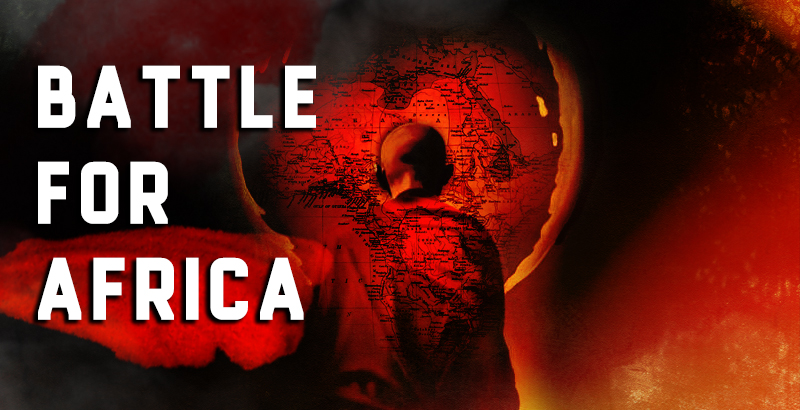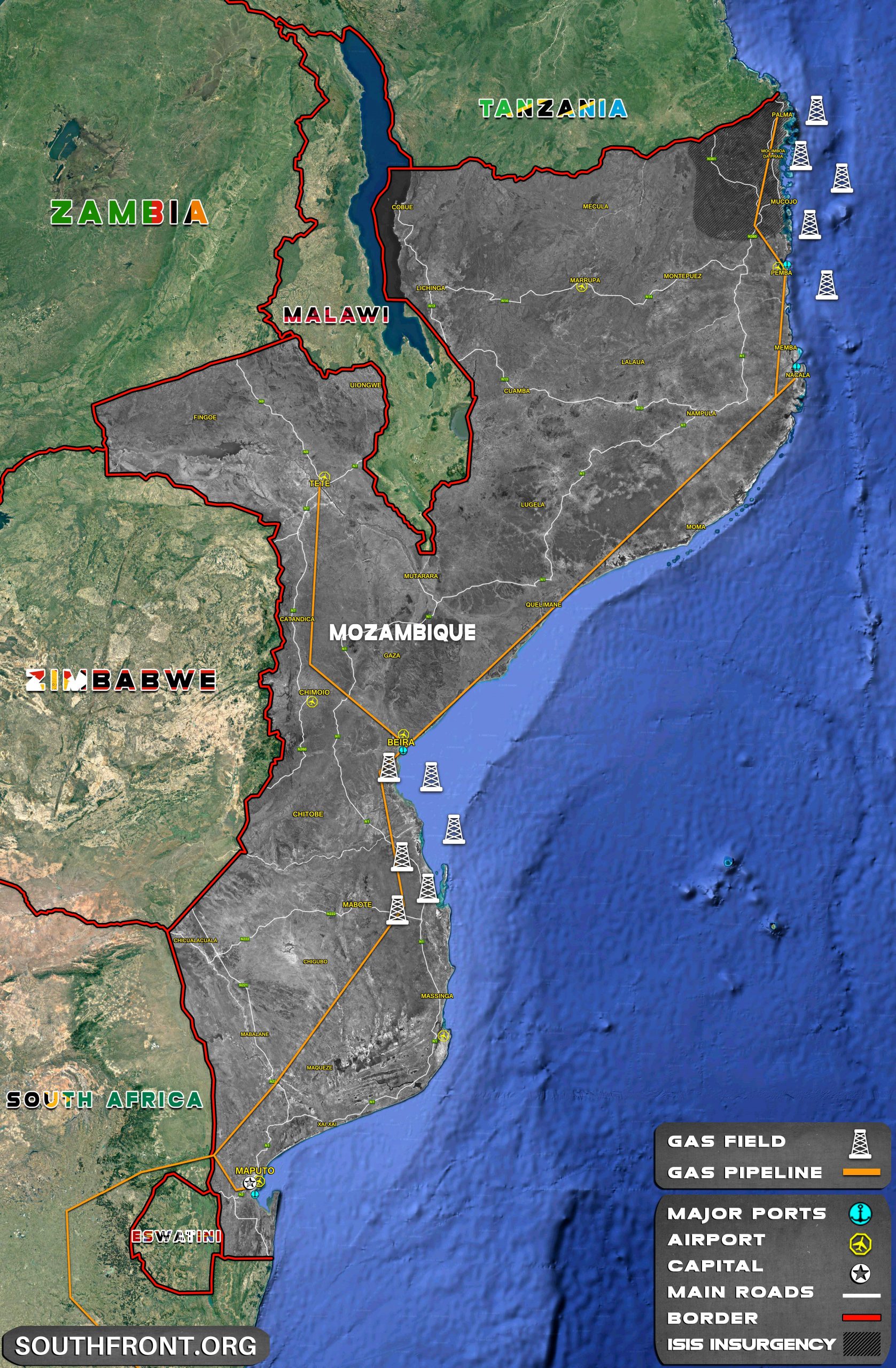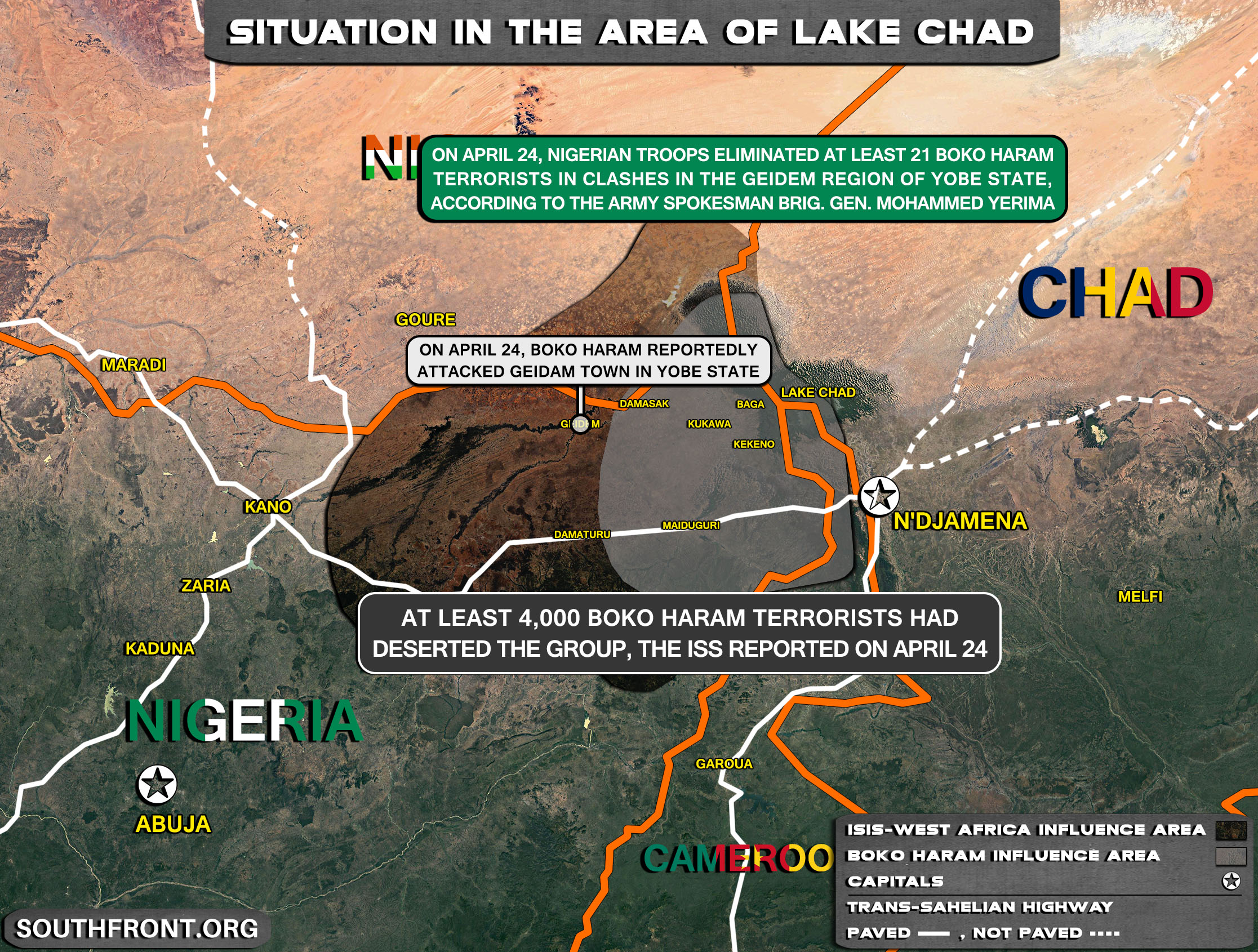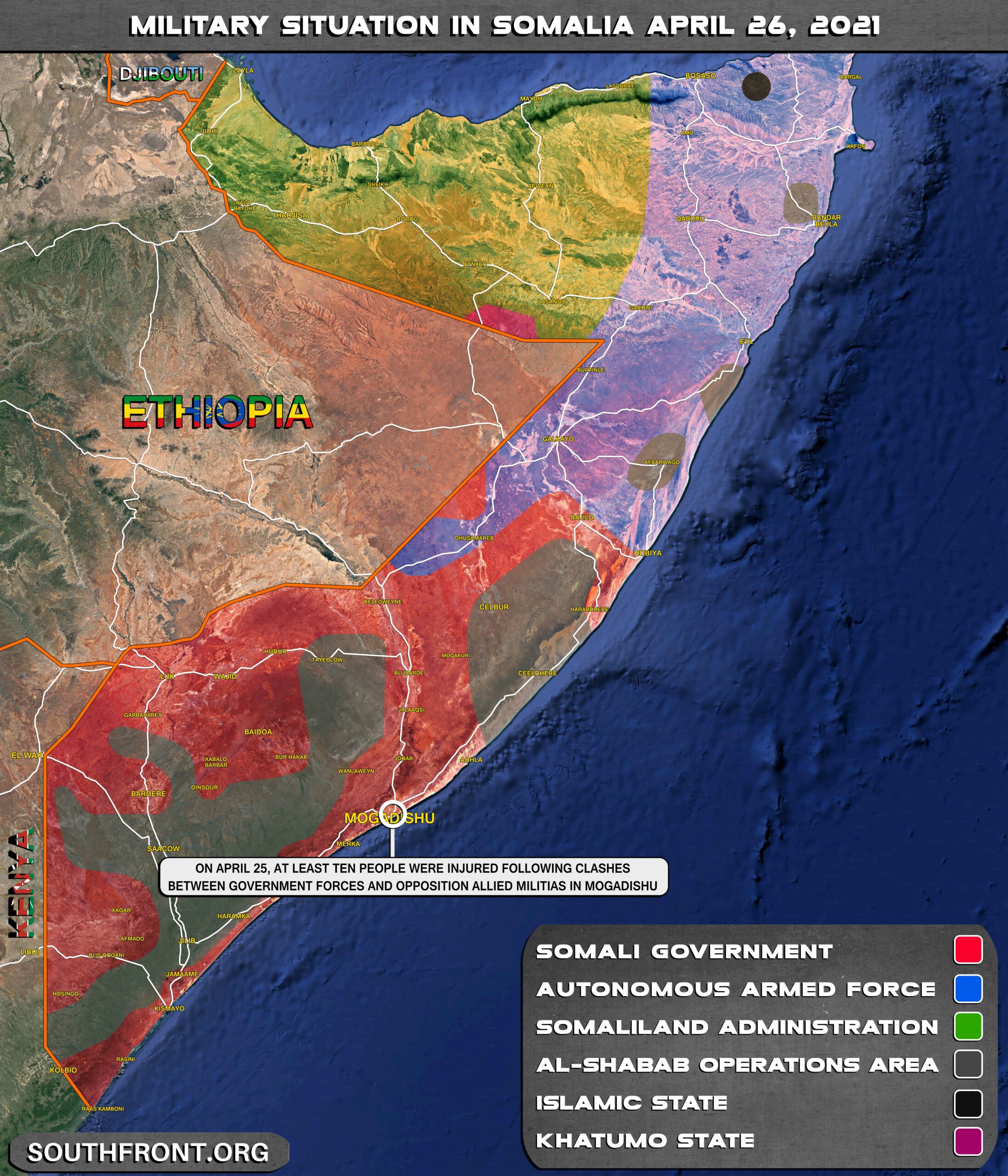Written by ThomasST exclusively for SouthFront.
There is currently a strong focus on southern Africa and especially on the country of Mozambique, where, it seems that ISIS has developed its activities with almost military like structured units, managing to bring under its influence entire areas or even cities.
Because academic descriptions and theories do not fit conveniently into these sort of situations, it is good to put a few things always in accordance with information from the main actors; as the southern part of the African continent is rather “offline” with regard to its information space for Europe. So whatever information we have is purely from other sources out there and of course from channels that are trusted in terms of their information flow.
Firstly let’s mention how ISIS never actually ceased to exist. On the contrary, from 2016 onward, many have pointed out the danger of its spread in areas of Africa and Asia where the interventions of the western world are by definition minimal and the corresponding controls and security measure capabilities of the countries on these above continents, is almost negligible (with the exception of China and Japan, which have dealt severely with terrorism in Asia).
The spread of the extremist core of Islam, which ISIS represents, which has been much more intense in Africa, is obviously to do with the following reasons:
- Zero control and security measures
- Minimal presence of Western forces
- Multiple avenues for financing terrorist groups through natural and urban resources
- Land geography (mountains, jungle, caves, etc.) as compared to the Middle East
- Ideal point control of naval flows (east and southeast Africa with access to the Indian Ocean and the Persian Gulf)
- Large distances away from conventional Western forces
- Huge recruiting pool for warlords and mercenaries at minimal costs
The above, which are just some of the parameters that have favored the development of ISIS, show that everything which is currently happening has found obvious fertile ground and very few obstacles, thus creating the current conditions for the presence of Islamist terrorists.
But are they really Islamists embracing the Jihadi ideology? Here things tend to say something different. There is a lot of information available to suggest that African terrorist groups consist of different people, who are from diverse races, ideologies and religious beliefs. Most are probably mercenaries, who simply accept money as a salary because of the poverty that they face. They seem to have developed networks that by force have presented a power that has very different characteristics from that of ISIS in the Middle East. For example, there is no central figure (Imam/Spiritual), only a central reference to Jihadi ideology which is used just as an excuse for their attacks. In addition, they do not specifically target Christians or other religious ideological groups, except in areas and urban centers which possess sufficient wealth.
For example, the seizure of the port of Mocimboa da Praia (Mozambique/Tanzania) is not considered important as any sort of symbolic reference point of an Islamic character. But it is an extremely important route for smuggling that brings in profits which fund their organizations. At the same time, there has been no attempt to impose Sharia law, except for seizure of the port and its occupation by military means. The same thing has also happened in clashes for control of gas resources and ruby mines in the province of Cabo Delgado, where battles have been fought with the country’s army for their possession. At the moment, they are currently unable to prevail in the region, but it is indicative that these specific wealth resources yield about 50 billion dollars per year.
The question that arises now is what will happen from here on in, as the terrorists allegedly linked to ISIS are evolving in a completely different manner from what we presently know about them so far and are showing a significant variational approach in their development. For example, they tend to occupy an urban center of a country, loot whatever they can from what is available and then change area and city. A classic tactic of warlords and mercenaries. They have no intention of either, converting the area to Islam or to want to establish a Caliphate, as was the case in the Levant region in the mid-2010 to 2020.
According to information so far available from countries such as Mali, Niger, Nigeria, the Republic of the Congo and now Mozambique, the following points, as a follow-up, should be addressed urgently.
- The immediate spread to other countries in sub-Saharan Africa but also to countries below the equator on the African continent.
- The lack of a strong force that would be able to place checkpoints against these flows. Ideally a country or a combination of African countries with a strong army and training that could be developed and then have the ability to act as a security regulator.
- The cessation of illegal immigration. It is estimated that terrorists earn about $10 – 20,000 per immigrant from this activity alone.
- The most obvious desire to control sea routes near East Africa.
The consequent spread of mercenaries/terrorists in other African countries as well.
It should be noted that there are already indications of a concentration of forces in western Uganda, as well as clashes on the South African border with Mozambique. The latter is extremely worrying, as a terrorist invasion and presence of a dominant force within the country of South Africa, with the already aggravated data that we know of political instability and crime trends, will create an enclave that cannot be dismantled without a solid allied military force to act as a counter-measure. South Africa, both in terms of resources and in terms of location and level of technology, is a reference point for the continent. If ISIS prevails here, then the problem will become a global threat.
Creation of a security force.
It is obvious why this is needed as well as the fact that countries, such as, Nigeria and South Africa can play a major role in the creation of a security force. The reason why it does not seem to be happening is that strengthening these nations could create a shift in balance that will affect many interests, both on and off the African continent. But it is a fact that in order to fight terrorists in this region, no traditional force can intervene, not even any of the rising forces (e.g. China). The cost would be huge, given the distance and the need to maintain forces constantly in the area. Probably, a means of supporting such a local force is the only way, even if it is done with serious dependence on its supporters.
Illegal immigration.
It is a cancer on the planet that must be controlled despite the “humanitarian cries” even by some within the UN, who paradoxically permit bank accounts to increase day by day by allowing this situation to persist. The ideal way to keep someone in their country is for that country to grow and become a stable and sustainable place to live. Obviously all this needs a lot of discussion, which cannot be done in this short article. Nevertheless, illegal immigration is something that only hurts the planet and fills up bank accounts that are cleverly held to the detriment of all of us.
Sea routes.
Sea routes are a major concern for governments and organizations in recent years, as piracy and crew hostage-taking bring in billions of dollars of income to pirates. At the same time, it also facilitates easy passage to all types of smuggling, and of course enabling the financial resources towards the development of terrorist groups. In theory, the developmental construction and prevalence of a security force in the region would counter the Islamists’ attempt of maritime domination, but this will take some time. It is probably the most difficult problem to resolve now before it develops into a wound. We already have a historical example of how difficult it was to tackle piracy in the early 2010s and 2020s and the vast amount of resources that were needed. Taking into account the fact that these operations would be very close to the drastic reach of the Western powers in the Mediterranean and on the outskirts of West Africa.
Obviously, the spread of ISIS as an ideology (or as an excuse) for some mercenary groups, has brought to the surface serious security issues that have just now begun to emerge. The African continent, although at a great geographical distance from the continents of Europe, Asia and North America, does not imply that the influence of those who play within it cannot be turned into a serious security risk. If, in fact, its development is left to chance, it could obviously turn into a deadly threat.
Edited by Supratim Barman.










